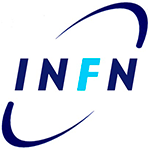Study of Shortcuts to Adiabaticity for QAOA Mara Vizzuso
Study of Shortcuts to Adiabaticity for QAOA
Study of Shortcuts to Adiabaticity for QAOA Mara Vizzuso, Gianluca Passarelli, Giovanni Cantele, Procolo Lucignano Dipartimento di Fisica “E. Pancini”, Università degli Studi di Napoli “Federico II”, Complesso Universitario M.S, Angelo, via Cintia 21, 80126, Napoli, Italy CNR-SPIN, c/o Complesso Universitario M.S, Angelo, via Cintia 21, 80126, Napoli, Italy The Quantum Approximate Optimization Algorithm (QAOA) is a promising hybrid quantum-classical algorithm that can solve combinatorial optimization problems [1]. The quantum part of the algorithm involves using parametric unitary operations on a quantum computer to prepare a trial solution state. The parametric QAOA angles are variationally optimized minimizing a cost function using classical methods. We study two generalized QAOA ansatzes that include corrections to the Trotter expansion at the first and second order based on the Baker-Campbell-Hausdorff (BCH) expansion [2], denoted QAOA-CD and QAOA-2CD respectively [3]. In the regime in which QAOA is close to Quantum Annealing (QA) [4], these new unitaries correspond to the countediabatic potential of Shortcuts to Adiabaticity [5]. The latter assists the adiabatic evolution limiting transitions towards excited states. In our work, we show that counterdiabatic QAOA has improved performances with respect to QAOA for the paradigmatic MaxCut optimization problem. [1] E. Farhi, J. Goldstone, and S. Gutmann, arXiv:1411.4028 (2014) [2] X.-P. Li and J. Q. Broughton, The Journal of Chemical Physics, (May 1987), vol. 86, pp. 5094–5100 [3] Vizzuso, Mara, et al. "Convergence of digitized-counterdiabatic QAOA: circuit depth versus free parameters." New Journal of Physics 26.1 (2024): 013002. [4] Morita, Satoshi, and Hidetoshi Nishimori. "Mathematical foundation of quantum annealing." Journal of Mathematical Physics 49.12 (2008). [5] Guéry-Odelin, David, et al. "Shortcuts to adiabaticity: Concepts, methods, and applications." Reviews of Modern Physics 91.4 (2019): 045001.





